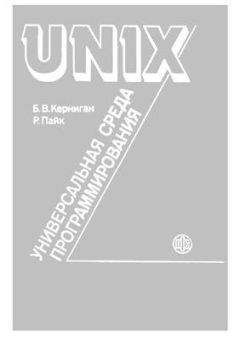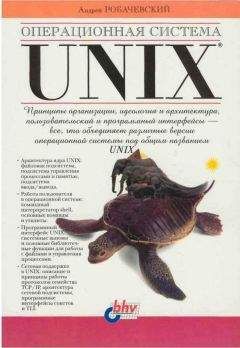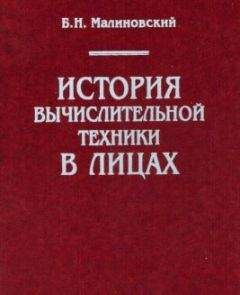int t;
double d;
{
Symbol *sp;
char *emalloc();
sp = (Symbol*)emalloc(sizeof(Symbol));
sp->name = emalloc(strlen(s)+1); /* +1 for '�' */
strcpy(sp->name, s);
sp->type = t;
sp->u.val = d;
sp->next = symlist; /* put at front of list */
symlist = sp;
return sp;
}
char *emalloc(n) /* check return from malloc */
unsigned n;
{
char *p, *malloc();
p = malloc(n);
if (p == 0)
execerror("out of memory", (char*)0);
return p;
}
awk '{ s += $'$1' }
END { print s }'
awk '
BEGIN { n = '$1' }
{ for (i = 1; i <= n; i++)
sum[i] += $i
}
END { for (i = 1; i <= n; i++) {
printf "%6g ", sum[i]
total += sum[i]
}
printf "; total = %6gn", total
}'
push -v panther $* /usr/bwk/eff/Code
# backwards: print input in backward line order
awk ' { line[NR] = $0 }
END { for (i = NR; i > 0; i--) print line[i] } ' $*
pick(s) /* offer choice of s */
char *s;
{
fprintf("%s? ", s);
if (ttyin() == 'y')
printf("%sn", s);
}
# bundle: group files into distribution package
echo '# To unbundle, sh this file'
for i
do
echo "echo $i 1>&2"
echo "cat >$i <<'End of $i'"
cat $i
echo "End of $i"
done
# cal: nicer interface to /usr/bin/cal
case $# in
0) set `date`; m=$2; y=$6 ;; # no args: use today
1) m=$1; set `date`; y=$6 ;; #1 arg: use this year
*) m=$1; y=$2 ;; #2 args: month and year
esac
case $m in
jan*|Jan*) m=1 ;;
feb*|Feb*) m=2 ;;
mar*|Mar*) m=3 ;;
apr*|Apr*) m=4 ;;
may*|May*) m=5 ;;
jun*|Jun*) m=6 ;;
jul*|Jul*) m=7 ;;
aug*|Aug*) m=8 ;;
sep*|Sep*) m=9 ;;
oct*|Oct*) m=10 ;;
nov*|Nov*) m=11 ;;
dec*|Dec*) m=12 ;;
[1-9]|10|11|12) ;; # numeric month
*) y=$m; m="" ;; # plain year
esac
/usr/bin/cal $m $y # run the real one
# calendar: version 1 -- today only
awk <$HOME/calendar '
BEGIN { split("'"`date`"'", date) }
$1 == date[2] && $2 == date[3]
' | mail $NAME
# calendar: version 2 -- today only, no quotes
(date; cat $HOME/calendar) |
awk '
NR == 1 { mon = $2; day = $3 } # set the date
NR > 1 && $1 == mon && $2 == day # print calendar lines
' | mail $NAME
# calendar: version 3 -- today and tomorrow
awk <$HOME/calendar '
BEGIN {
x = "Jan 31 Feb 28 Mar 31 Apr 30 May 31 Jun 30 "
"Jul 31 Aug 31 Sep 30 Oct 31 Nov 30 Dec 31 Jan 31"
split(x, data)
for (i = 1; i < 24; i += 2) {
days[data[i]] = data[i+1]
nextmon[data[i]] = data[i+2]
}
split("'"`date`"'", date)
mon1 = date[2]; day1 = date[3]
mon2 = mon1; day2 = day1 + 1
if (day1 >= days[mon1]) {
day2 = 1
mon2 = nextmon[mon1]
}
}
$1 == mon1 && $2 == day1 || $1 == mon2 && $2 == day2
' | mail $NAME
/* cat: minimal version */
#define SIZE 512 /* arbitrary */
main() {
char buf[SIZE];
int n;
while ((n = read(0, buf, sizeof buf)) > 0)
write(1, buf, n);
exit(0);
}
/* checkmail: watch user's mailbox */
#include <stdio.h>
#include <sys/types.h>
#include <sys/stat.h>
char *progname;
char *maildir = "/usr/spool/mail"; /* system dependent */
main(argc, argv)
int argc;
char *argv[];
{
struct stat buf;
char *name, *getlogin();
int lastsize = 0;
progname = argv[0];
if ((name = getlogin()) == NULL)
error("can't get login name", (char*)0);
if (chdir(maildir) == -1)
error("can't cd to %s", maildir);
for (;;) {
if (stat(name, &buf) == -1) /* no mailbox */
buf.st_size = 0;
if (buf.st_size > lastsize)
fprintf(stderr, "nYou have mail�07n");
lastsize = buf.st_size;
sleep(60);
}
}
#include "error.c"
# checkmail: watch mailbox for growth
PATH=/bin:/usr/bin
MAIL=/usr/spool/mail/`getname` # system dependent
t=${1-60}
x="`ls -l $MAIL`"
while :
do
y="`ls -l $MAIL`"
echo $x $y x="$y"
sleep $t
done | awk '$4 < $12 { print "You have mail" }'
/* cp: minimal version */
#include <stdio.h>
#define PERMS 0644 /* RW for owner, R for group, others */
char *progname;
main(argc, argv) /* cp: copy f1 to f2 */
int argc;
char *argv[];
{
char buf[BUFSIZ];
progname = argv[0];
if (argc != 3)
error("Usage: %s from to", progname);
if ((f1 = open(argv[1], 0)) == -1)
error("can't open %s", argv[1]);
if ((f2 = creat(argv[2] , PERMS)) == -1)
error("can't create %s", argv[2]);
while ((n = read(f1, buf, BUFSIZ)) > 0)
if (write(f2, buf, n) != n)
error("write error", (char*)0);
exit(0);
}
#include "error.c"
# doctype: synthesize proper command line for troff
echo -n "cat $* | "
egrep -h '^.(EQ|TS|[|PS|IS|PP)' $* |
sort -u | awk '
/^.PP/ { ms++ }
/^.EQ/ { eqn++ }
/^.TS/ { tbl++ }
/^.PS/ { pic++ }
/^.IS/ { ideal++ }
/^.[/ { refer++ }
END {
if (refer > 0) printf "refer | "
if (pic > 0) printf "pic | "
if (ideal > 0) printf "ideal | "
if (tbl > 0) printf "tbl | "
if (eqn > 0) printf "eqn | "
printf "troff "
if (ms > 0) printf "-ms"
printf "n"
}'
awk '
FILENAME != prevfile { # new file
NR = 1 # reset line number
prevfile = FILENAME
}
NF > 0 {
if ($1 == lastword)
printf "double %s, file %s, line %dn" ,$1,FILENAME,NR
for (i = 2; i <= NF; i++)
if ($i == $(i-1))
printf "double %s, file %s, line %dn" ,$i, FILENAME ,NR
if (NF > 0)
lastword = $NF
}' $*
FILE *efopen(file, mode) /* fopen file, die if can't */
char *file, *mode;
{
FILE *fp, *fopen();
extern char *progname;
if ((fp = fopen(file, mode)) != NULL)
return fp;
fprintf (stderr, "%s: can't open file %s mode %sn",
progname, file, mode);
exit(1);
}
error(s1, s2) /* print error message and die */
char *s1, *s2;
{
extern int errno, sys_nerr;
extern char *sys_errlist[], *progname;
if (progname)
fprintf(stderr, "%s: ", progname);
fprintf(stderr, s1, s2);
if (errno > 0 && errno < sys_nerr)
fprintf (stderr, " (%s)", sys_errlist[errno]);
fprintf(stderr, "n");
exit(1);
}
awk '{ print $'$1' }'
awk "{ print $$1 }"
# fold: fold long lines
sed 's/(->/ /g' $* | # convert tabs to spaces
awk '
BEGIN {
N = 80 # folds at column 80
for (i = 1; i <= N; i++) # make a string of blanks
blanks = blanks " "
}
{ if ((n = length($0)) <= N)
print
else {
for (i = 1; n > N; n -= N) {
printf "%s\n", substr($0, i ,N)
i += N;
}
printf "%s%sn", substr(blanks, 1, N-n), substr($0, i)
}
} '
cat $* |
tr -sc A-Za-z '�12' |
sort |
uniq -с |
sort -n |
tail |
5
sed 's/[ (->][ (->]*/
/g' $* | sort | uniq -с | sort -nr | sed 10q
# get: extract file from history




